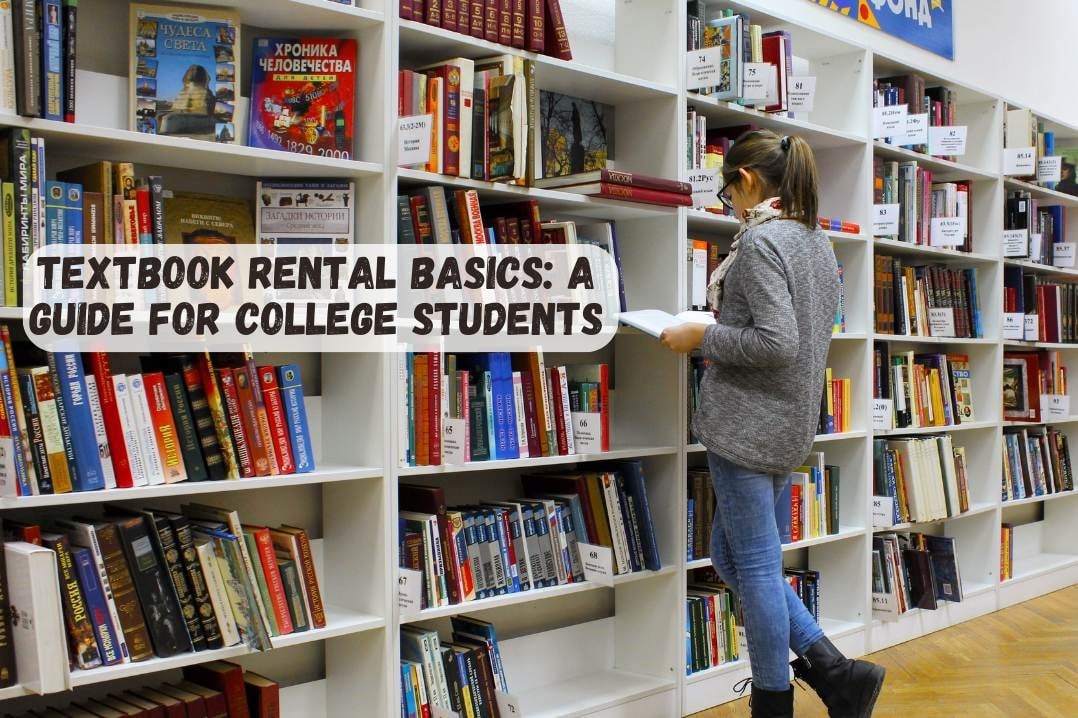Every year has 365 days, giving you lots of time to do something wonderful. Studying abroad is one of those amazing things. It is a fantastic decision with more benefits than you can imagine! Whether you want to learn a new language or take classes in another country for a global experience, college does not have to be just on campus.
No matter your field, year, or language skills, there is a study abroad program for everyone. The best providers offer programs from Europe to East Asia, so you can learn from anywhere in the world. You can try things like nursing horses back to health in Scotland or studying photography in Poland. There are so many options to fit your goals, dreams, and personality.
Look at the list below and figure out what is best for you!
- Erasmus+ Program:
It offers students the chance to make friends, find mentors, and connect with professionals from around the world. These connections last even after their time in the program.
- Location:
Available in European countries
- Point in time:
Offers exchange programs for students studying at the undergraduate and graduate levels.
Application Process:
- EU Login Setup:
Begin by creating an EU login, as it is a prerequisite for filling out applications.
- Organization Registration System:
Utilize the Organization Registration system to register your organization and facilitate the application process.
- Form Completion:
Fill out the necessary forms, providing all required information and details.
- National Agencies Evaluation:
After submission, your application will undergo evaluation by National Agencies as part of the assessment process.
- Fulbright Program:
It provides a variety of scholarships and fellowships for U.S. students for study and research.
- Location:
Run by the U.S. Department of State
Application Process
- Verify Eligibility:
Confirm that you meet the eligibility criteria for the Fulbright U.S. program.
- Identify Applicant Category:
Determine your applicant type based on your qualifications and objectives.
- Choose Award Category:
Select the specific type of award that aligns with your academic and professional goals.
- Discover Country Options:
Examine the opportunities available in various countries for the Fulbright program.
- Examine Application Requirements:
Review the different components necessary for your application.
- Start the Application:
Start the application process, ensuring to follow the provided guidelines and instructions.
- Gilman International Scholarship Program:
It offers awards to U.S. undergraduates with Pell Grants for studying abroad globally.
- Location:
It refers by the U.S. Department of State's Bureau.
Application Process
Step 1: Submit Your Application by the Student Deadline:
- Ensure all critical components are included in your application.
- These components include the Statement of Purpose, Community Impact Essays, and both unofficial and official transcripts. You can refer to a PDF version of the online application for guidance.
- Remember, only applications submitted through the online portal will be taken into consideration.
Step 2: Obtain Certification from Study Abroad and Financial Aid Advisors:
- It is your responsibility to make sure both advisors complete their certification by the specified deadline.
- Contact the relevant offices at your home institution to identify the correct study abroad and financial aid certifying advisors.
- If an advisor is not listed in the online application, encourage them to register as a Gilman advisor before the application deadline. Once registered, you can select your institution and advisors in your application.
- Applications lacking certifications will not be considered.
-
CIEE (Council on International Educational Exchange):
Provides a range of programs, including semester and summer sessions
- Location:
Berlin, London, Shanghai, Sydney, and beyond!
Application Process
- Share personal details such as your name, addresses, and birth date.
- Select the name of your university.
- Select your program, term, and year. If you are applying directly from a program page, these details may be pre-selected for your convenience.
- Furnish information about emergency contacts, ensuring we have the necessary details to reach someone in case of need.
- Add the contact information of the study abroad advisor at your university or college.
- For some programs, there might be extra steps. If applicable, these will be clearly outlined in your application.
- Familiarize yourself with CIEE's Terms and Conditions, and once understood, provide your signature.
- Complete your application by clear the application fee.
-
ISA (International Studies Abroad):
It provides academic and cultural experiences for students at various levels.
- Location:
Offers study abroad programs in Africa, Asia, Latin America, and the Pacific etc.
Application process
- Meet with your study abroad advisor to discuss course approval, gather initial paperwork required by your university, and explore financial aid options.
- Research the courses you would like to take abroad and bring those course descriptions to your advisor for review and preapproval.
- Check ISA deadlines to ensure you stay on track with your study abroad planning.
-
AIFS (American Institute for Foreign Study):
It provides a wide range of study abroad programs, including academic and internship options.
- Location:
Offers programs in Barcelona, Spain
-
Application Process
- Choose Your Program: Think about where and when you want to study abroad. AIFS Abroad has many options. Check programs by city, country, term, or courses.
- Get Ready: Talk to your family and support system. Learn about safety, program details, and the benefits of studying abroad. Meet with your school advisors for advice on credits and financial aid.
- Apply: Make an account and start your application. Pay the fee. Your AIFS Enrollment Team will guide you. Get your courses approved by your school. Submit required documents like transcripts and photos.
- Acceptance: Congrats! Your application is complete. Expect an acceptance decision in about two weeks via email.
- Pay Deposit: Ready to join? Pay the deposit to secure your spot.
- Prepare to Fly: Make sure your passport is valid. Apply for or renew it. Read all the info provided, you might need a student visa.
-
IES Abroad:
It provides study abroad programs in a variety of disciplines and locations.
- Location
Siena and Italy
Application Process
- Start exploring programs by location, term, discipline, language, and more.
- Understand your Passport & Visa Requirements. Be sure to confirm your requirements ASAP!
- Your Representative helps you before you apply.
- Apply Online.
- Submit Additional Forms.
-
SIT Study Abroad (School for International Training):
Its offers programs in various countries, addressing specific themes and global issues
- Location:
There are 80 programs available in almost 40 countries.
Application Process
- Review criteria on the application for SIT Study Abroad.
Fee Waivers:
- Pell Grant recipients, SEO Scholars, and veterans can get application fees waived.
- Tick the box on the application for a fee waiver. Confirmation may be requested by SIT Admissions.
Application Steps:
- Apply online or download necessary forms.
- Different programs have specific requirements, so check your chosen program's page.
Review Process:
- Admissions committee reviews applications by program until full.
- Expect communication within three weeks; more time may be needed in some cases.
Second-Choice Programs:
- If your first choice is not available, SIT will help you find a second choice.
- No need to reapply; second choices will not be automatically considered.
Post-Acceptance Steps:
- Complete additional steps after acceptance, including submitting materials and payment.
- Health reviews and visa processes apply to most programs.
- Pre-departure materials specific to your program will be provided.
Before Departure:
- Receive visa instructions (if applicable), a detailed program letter, and access an online student group.
Accommodations for Disabilities:
- Request disability-related accommodations through the online form.
Appeals Process:
- Denied admission? Appeal within 10 days (about 1 and a half weeks) by sending a letter to the director of admissions. Download the Appeals Policy for details.
-
IFSA (Institute for Study Abroad):
Offers study abroad programs in Asia, Europe, Latin America, and the Middle East.
Application Process
We have simplified the process into a few straightforward steps. Should you ever have questions or encounter any challenges
- Step 1: discover
- Step 2: submit
- Step 3: confirm
- Step 4: prepare
- Step 5: begin your journey!
-
Study Abroad Programs through Universities:
- Many U.S. universities have their own study abroad programs or partnerships with foreign institutions.
- Check with your home university's international programs office for specific opportunities.
- Location:
Offered by many U.S. universities
Further details:
It could be a short summer trip or a longer exchange for a whole school year. If you are interested, check with your school's international programs office. They can tell you about the opportunities, what you need to qualify, and how to apply. Your school's own programs are excellent. They provide a unique experience based on your school's strengths and connections.
What Makes These the Best Study Abroad Programs for College?
Thinking about studying abroad and wondering where to go and what to study? Yep, it is worth it! Check out our tips on what makes these study abroad programs the best for college students.
- More Than Just Fun:
No matter where you go, studying abroad is always a blast. But here is the cool part – you can also get school credit for it. Great news, especially if you are traveling during the regular school year. You will not fall behind in your studies, and you will have amazing memories to cherish.
- Your Schedule, Your Way:
Got a major with a tricky schedule? No worries. The best study abroad programs offer trips all year or for a full year. They know not everyone can travel during the usual school year, so they have flexible options to make your dream trip possible.
- Help Without the Huge Cost:
Studying abroad can cost a bit, but do not worry. The best programs want to make it affordable. They will help with money if you qualify and show you where to find scholarships. These programs want everyone, no matter their budget, to have an awesome adventure.
- No Mystery Abroad:
The surprises are fun, but having a bit of a plan is good too. The best programs mix the excitement of the unknown with clear goals for everyone. So, when it comes to the best study abroad programs for college, you get to have planned fun without missing the whole experience. Cool, right?
Bottom Line
Traveling to another country is a special experience you should try. It is something you will always remember and learn a lot from, no matter where you decide to go. Studying abroad gives you a unique learning journey that you cannot always have on your college campus. It is a chance to explore beyond your town and choosing the right program will leave a lasting impact on you even after you return.
In the end, if a program fits with your class schedule and matches your interests, it is the best one for you.
To quote:
Tim Gunn, "Make it work!" – Meaning, if it works for you, go for it!
FAQs
- What financial assistance is available for studying abroad?
Many study abroad programs offer financial aid, scholarships, or grants to help offset the costs. However, your home university's financial aid office can provide information on available resources and guidance on funding your international experience.
- How do I handle homesickness while studying abroad?
It is normal to feel homesick. Stay connected with family and friends through calls and messages. Try to engage with fellow students and locals to build a support network. To build new experiences and give yourself time to adjust; homesickness often lessens as you immerse yourself in the culture.
- Can I work while studying abroad?
The ability to work while studying abroad depends on the country and visa regulations. Some programs may allow part-time work for international students. So, firstly check with your program coordinator, and be aware of any restrictions or requirements imposed by the host country.
- How do I choose the right destination for studying abroad?
First, consider your academic and personal goals, language preferences, and cultural interests. Then, research potential destinations, program offerings, and local cultures. In the end, consult with your academic advisor or the study abroad office at your university for guidance on selecting a location that aligns with your aspirations.
- What support is available for students with special needs or disabilities?
Many study abroad programs and universities strive to provide accommodation for students with special needs or disabilities. Before selecting a program, communicate your specific requirements with the program coordinator and inquire about available support services, ensuring a positive and inclusive study abroad experience.
References
- McLeod, M., & Wainwright, P. Researching the study abroad experience. Journal of Studies in International Education, 13(1), 66-71.
- Clarke III, I., Flaherty, T. B., Wright, N. D., & McMillen, R. M. Student intercultural proficiency from study abroad programs. Journal of Marketing Education, 31(2), 173-181.
Read our articles related to studies; Work Exchange Programs for College Students, Is It Cheaper To Rent Textbooks?, and more.









